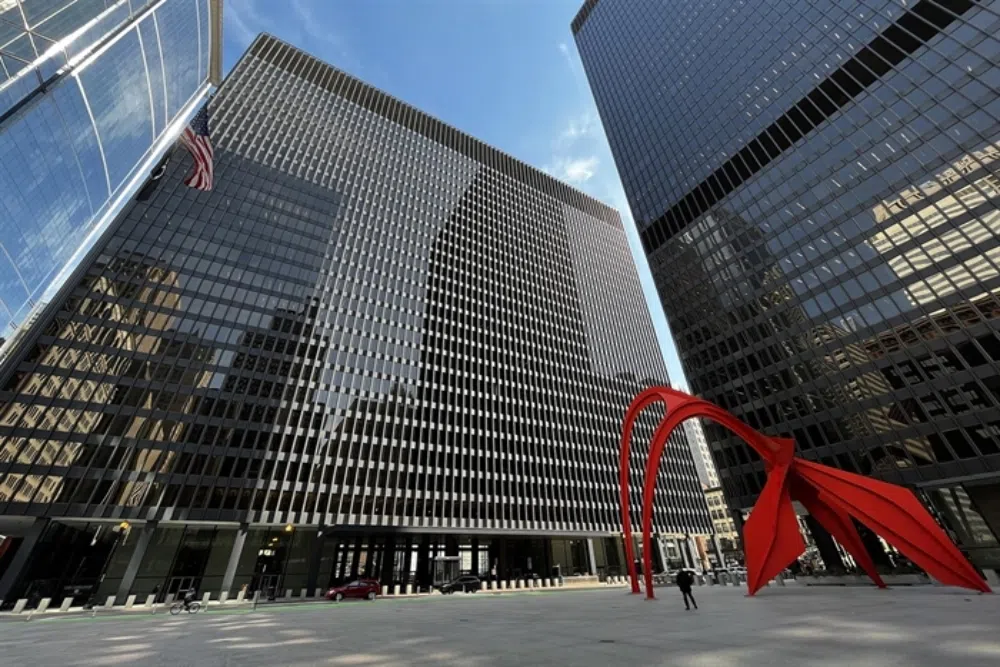SPRINGFIELD, Ill. (Capitol News Illinois) – Gun rights advocacy groups say they intend to ask the U.S. Supreme Court to review the state’s assault weapons ban after a federal appeals court on Friday refused to block enforcement of the law.
In a statement Saturday, the Illinois State Rifle Association said it was not surprised by the 7th Circuit panel’s 2-1 decision, which said plaintiffs in the consolidated cases had not met their burden to show they were likely to win in a constitutional challenge to the law.
“It has always been and is our intent to take our case to the U.S. Supreme Court where we believe we can get a favorable ruling for law-abiding gun owners in Illinois,” the organization said. “We will continue to stand up for the Second amendment and Illinois law-abiding gun owners and against our anti-gun Governor Pritzker and General Assembly.”
In addition, the National Foundation for Gun Rights – which provided attorneys involved in the consolidated case – said it will appeal as well.
“Semi-auto bans like Illinois’ strike right at the heart of the Second Amendment and are completely inconsistent with multiple Supreme Court precedents,” the organization said in a statement. “We will keep fighting and are preparing to appeal this outrageous ruling.”
The 7th Circuit’s decision on Friday left in place the state’s assault weapons ban as well as local bans enacted by Cook County and the cities of Chicago and Naperville.
The state of Illinois and the city of Naperville both enacted their bans in response to a mass shooting last year at an Independence Day parade in Highland Park that left seven people dead and dozens more injured or traumatized.
Authorities say the alleged shooter in that incident used a Smith & Wesson M&P 15 semiautomatic rifle and carried three 30-round magazines. That type of gun and magazine are now banned under the state’s assault weapons law.
The majority opinion from the 7th Circuit focused on whether that type of weapon, or others like it, were protected under the Second Amendment.
That opinion, written by Judge Diane Wood and cosigned by Judge Frank Easterbrook, drew a distinction between the types of “bearable” arms commonly used for self-defense and the type of weapons typically reserved only for military uses.
“The State of Illinois, in the legislation that lies at the heart of these cases, has decided to regulate assault weapons and high-capacity magazines — a decision that is valid only if the regulated weapons lie on the military side of that line and thus are not within the class of arms protected by the Second Amendment. Several municipalities have done the same,” the majority wrote.
“The plaintiffs in these cases challenge that conclusion. Using the tools of history and tradition to which the Supreme Court directed us … we conclude that the state and the affected subdivisions have a strong likelihood of success in the pending litigation,” the opinion continued.
However, the majority left open the possibility that the plaintiffs could, at some later stage of the process, produce evidence to show that the banned weapons should be protected under the Second Amendment.
In a dissenting opinion, Judge Michael Brennan said the law goes far beyond banning firearms defined as “assault weapons,” saying it “eliminates the ownership, possession, and use for self-defense of many of the most commonly owned semiautomatic handguns, shotguns, rifles, and magazines.”
“The Second Amendment ‘right of the people to keep and bear Arms’ is not a second-class right,” he wrote. “Yet the state of Illinois and several Illinois municipalities have categorically banned law-abiding citizens from keeping and bearing a sweeping range of firearms and magazines.”
The U.S. Supreme Court has already agreed to hear at least three other gun-related cases during the 2023-2024 term. Among those is a case it will hear on Tuesday challenging a federal law banning the possession of guns by people who are subject to domestic violence restraining orders.
Late last week, the court also agreed to hear two more gun-related cases, including one that challenges whether a gun equipped with a gun equipped with a “bump stock” – a device that makes a semiautomatic gun fire repeatedly like a fully automatic gun – can be banned as a “machine gun” under federal law.
Another case challenges whether a New York state regulator was protected by the First Amendment when she warned regulated financial institutions not to do business with the National Rifle Association or other “gun promotion organizations.”
(Reporting by Peter Hancock, Capitol News Illinois)
Capitol News Illinois is a nonprofit, nonpartisan news service covering state government. It is distributed to hundreds of newspapers, radio and TV stations statewide. It is funded primarily by the Illinois Press Foundation and the Robert R. McCormick Foundation, along with major contributions from the Illinois Broadcasters Foundation and Southern Illinois Editorial Association.








